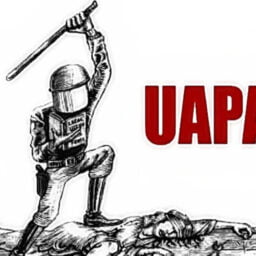What is Capital Reduction?
Capital reduction is essentially a process of an internal restructuring of a company. A company can undertake capital reduction for various reasons which generally include accumulation of business losses, assets whose values have reduced or whose value is in an unclear position, etc. This process can also be undertaken by a company when it deems that it possesses much more capital resources than it can employ profitably for commercial benefit. Generally, one of these is the cases in which a company chooses to reduce its share capital.
Analysis
As per the essence of the corporate legal landscape in India and perhaps in the majority of the nations in the world, the major decisions which are needed to be taken in a company are put to vote and then the decision of the majority prevails. Now this works absolutely fine in most of the cases unless and until the decision has some other motivation and is set to hurt a class of shareholders of the company who has invested their hard-earned money in that company. Therefore, in spite of a clear bureaucratic procedure in place to proceed with capital reduction, certain lee-ways have been provided to the minority shareholders of a company who, if they deem fit, can object to such capital reduction and the court considering their cases and the reasons for objection may not allow the company to proceed with such capital reduction.
It is important to be noted at this juncture that for a company to undertake the process of reducing the share capital that it holds, it must comply with three essential thins. The first and foremost thing is that the existing shareholders of the company must approve the reduction of the share capital of the company and this approval must be done through the passage of a special resolution. Secondly, the National Company Law Tribunal (NCLT) must assess the reasons as provided by the company officials who have applied for the reduction of share capital and only subject to the approval given by the NCLT, the reduction of share capital can be undertaken. Thirdly and finally, the accounts of the company or the procedure in which the accounting of the company has been done must be in compliance with the accounting standards as is clearly specified by the Companies Act, 2013. Therefore, these three essential steps must be followed by a company when reducing or applying for the reduction of share capital that it possesses.
Another quintessential requirement that a company must comply with when planning to reduce its share capital is that such authority of reduction must be present in the Articles of Association (AOA) of the company. If the company doesn’t possess the power to reduce the share capital that it possesses in its AOA, then it needs to be amended first and then only through the passage of a special resolution, the capital reduction can be done. It is also important to note that a company cannot decide to go ahead with the reduction of share capital if it owes money to someone or to some entity that it ought to have paid earlier which includes but is not limited to, the interest that it owes to anyone on the deposits that it has accepted. The High Court of Delhi in the landmark case of Reckitt Benckiser (India) Ltd.[1] noted that whether a company wants to reduce its share capital or not is purely an in-house matter of that company. The court decided to not meddle in the situations on the basis that in matters which are of domestic concerns of a particular company and wherein the law allows the company to take a decision on such domestic matter, the court will choose to not interfere. However, the court also noted that it is purely upon every shareholder of the company to decide that whether or not they want their shares to be reduced. Certain shareholders can also choose to have their shares, not at all reduced and shareholders shall also have the provision of extinguishing all their shares in totality but it should be done in lieu of an amount that the shareholders would deem fit and fair.
Certain companies have in the past taken the route of selective capital reduction to totally extinguish a class of shareholders which in most cases have been the minority shareholders. This is a ploy which the majority shareholders have used to bypass the nod that they would require otherwise for undertaking the scheme of reducing the share capital of the company. The courts have noted this discrepancy which is a bit lob sided for the minority shareholders and hence have settled this issue in the landmark case concerning the reduction of share capital which is the case of Sandvik Asia Limited v. Bharat Kumar Padmasi and Ors[2]. The court, in this case, noted that at the very onset it has to be established by the company which is applying for reduction of share capital that the class of shareholders other than the promoter shareholders are being compensated fairly for their shares. The court also noted that it will also put the grave impetus on the voting records and will check that whether or not the majority of the shareholders who are non-promoter in nature, have voted in favour of such reduction of share capital. If these two abovementioned facts are proved by the company that has applied for reduction, then the court shall allow the reduction of share capital.
The abovementioned stance was further bolstered by the High Court of Bombay in the landmark case concerning capital reduction wherein Cadbury India limited[3] sought to reduce its share capital. In this case, the High of Bombay put a grave impetus on the approval of the proposed reduction of share capital by a majority of the shareholders who do not explicitly possess the controlling power of the company. The court further noted that the views of the majority will not be disregarded by it however it shall in no way be in a position to not question the view of the majority and be bound by it. In furtherance to this stance put forward by the court, it also reiterated the principle as mentioned in the case of Sandvik[4] which was that the votes of the majority of minority shareholders shall not be disregarded and the commercial viability behind such voting shall also be tested by the court. Therefore before sanctioning any sort of reduction the NCLT will first test that whether or not the reduction of share capital will be in fairness to all the creditors and the equitability of such reduction shall also be tested. Once the tribunal is satisfied with the two abovementioned tenets, then and only then it shall allow such a scheme of capital reduction. Hence, minority shareholders can definitely dissent to such capital reduction during the process of special resolution and thereafter by filing an application before the NCLT. Further, the order of NCLT can be challenged at the NCLAT. The primary point that needs to be proved in such an application is that the capital reduction process isn’t commercially a viable option. If the applicant can prove that the said capital reduction will prove to be detrimental for the holistic development and profile of the company, then on that ground the NCLT shall consider and most likely not allow the reduction to take place.
In the past, the NCLT bench of Chennai, in the case of Simpson & Co. has ordered the company to constitute a trust to safeguard the interest of dissenting minority shareholders. Indian courts have been cognizant of the fact that certain companies sometimes use strategies and apply a sly interpretation of the law to make sure that a certain class of shareholders are squeezed out completely of their shareholding. This was noted in the landmark case of Chetan Cholera vs. Rockwool. This further was termed by the court as an act that is reproachful in nature and condemnable as well. This essentially insinuates the fact that the courts are sympathetic towards Though Indian Courts have refused to meddle in the domestic matters of a company (as held by the Hon’ble Supreme Court in the case of Miheer H. Mafatlal[5]), there are certain exceptions to this rule and one of them being the cases wherein there is a requirement of a special majority which is a requirement in the case of passing a special resolution which in turn is a quintessential step in capital reduction.
The minority shareholders can take the help of section 241 of the Companies Act, 2013 and move directly to NCLT to dissent against the reduction of share capital by citing the reason of oppression of minority shareholders. The application under the abovementioned section can be filed when the conducts of the company are such which may negatively impact directly or indirectly, the commercial interests of the company and the members of the company. If the conduct is to hamper even any particular group of shareholders, then also the abovementioned petition can be filed before NCLT under the said section. Under section 397(2) of the Companies Act, 2013, the NCLT has the authority to grant relief if it deems that the affairs of the company are being conducted in such a manner that directly hampers the general interest of the public or hampers the position of any of the members/group of members of the company.
Conclusion
Although in cases of capital reduction wherein it is being done for the ultimate benefit of the company and is commercially viable, nothing major can be done by minority shareholders. At the most what can be done is that u/s 236(3) of Companies Act, 2013, they can offer the majority shareholders to buy their shares in exchange for a fair amount. If the amount received is not deemed to be fair and equitable, then that again can be challenged and the order of the NCLT shall be final in this regard.
Author(s) Name: Rajdeep Bhattacharjee (Symbiosis International University, Pune)
References:
[1] 268 (2020) DLT 359.
[2] 2009 111 (4) BOM LR 1421
[3] 2015 (125) CLA 77 (Bom)
[4] 2009 111(4) BOM LR 1421
[5] AIR 1997 SC 506.
















